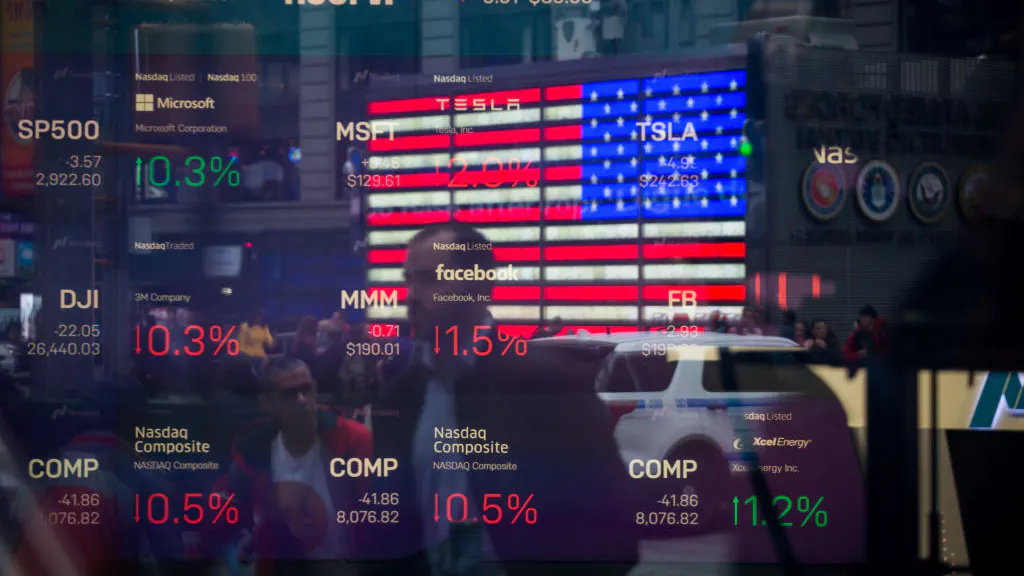The technology sector is witnessing its most severe losing streak in over two decades.
The Nasdaq — a technology-heavy stock index — has endured seven weeks of losses, including 3.8% declines during the week of May 16. The drops constitute the worst declines since the dot-com selloff in 2001, according to CNBC.
“Inflation, rising interest rates, the war in Ukraine and pandemic lockdowns in China are adding up to a disastrous market in general and a particularly brutal stretch for investors in technology and growth stocks, after historic rallies in recent years,” the outlet reported. “The Federal Reserve has signaled it will continue to increase rates to fight inflation, leading to concern that higher costs of capital will combine with deteriorating consumer confidence to eat away at profit margins.”
Companies such as Tesla, Cisco, Dell, and Twitter experienced large drops this week — 14%, 13%, 11%, and 6%, respectively.
Guggenheim Partners Global Chief Investment Officer Scott Minerd told MarketWatch that the United States is in for a “summer of pain” as the Federal Reserve attempts to curb inflation by hiking interest rates. Indeed, Fed Chair Jerome Powell said at a recent conference that “restoring price stability is an unconditional need” and “something we have to do.”
According to Minerd, the United States is bound for “a pretty severe selloff” since the Fed appears to have “very little concern about the continuation of what I think now is a bear market.”
“With the passage of time as the Fed continues to hike, we will find ourselves experiencing the effects of increasingly restrictive monetary policy,” Minerd predicted in research reviewed by MarketWatch. “Well before it reaches this terminal rate the Fed will increase the risk of overshooting, causing a financial accident, and starting a recession.”
The Fed had dropped its benchmark interest rate to near-zero levels at the outset of COVID-19 and the lockdown-induced recession in a bid to stimulate economic activity. Over the past few months, however, the Fed began aggressively increasing rates in response to rampant inflation pressuring consumers.
Former Federal Reserve Chair Ben Bernanke said during a Monday interview that the central bank’s delayed inflation response “was a mistake.”
“The question is why did they delay that. … Why did they delay their response? I think in retrospect, yes, it was a mistake,” he said. “And I think they agree it was a mistake.”
“There’s a lot of support for the fact that the Fed is tightening now, even though obviously we see the effects in markets,” Bernanke continued. “You know, we’ll see the effects in house prices, etc. So those are some ways in which the current situation I think is better because we learned a lot from the ‘70s.”
The April 2022 Survey of Consumer Expectations revealed that Americans are deeply worried about inflation and expect higher price levels in the long run. Inflation expectations at the one-year horizon fell from 6.6% to 6.3% in March, even as three-year horizon expectations rose from 3.7% to 3.9%. Both data series remain near their highs.
According to University of Florida economist Hector Sandoval, inflation plays a major role in American households’ worries — thereby threatening to slow economic activity.
“Currently, spending intentions have been trending downward over the last few months as inflation has risen consistently, reaching record levels and prompting the Fed to increase interest rates in the short run,” Sandoval said in response to sentiment among Florida consumers dropping 4.4% in April.

Continue reading this exclusive article and join the conversation, plus watch free videos on DW+
Already a member?

.png)
.png)

